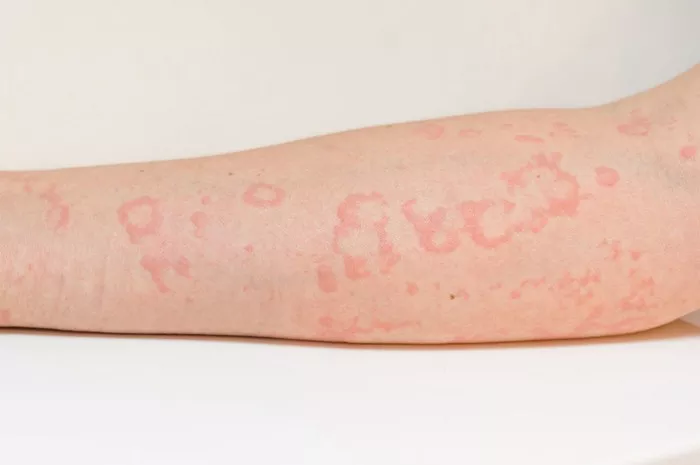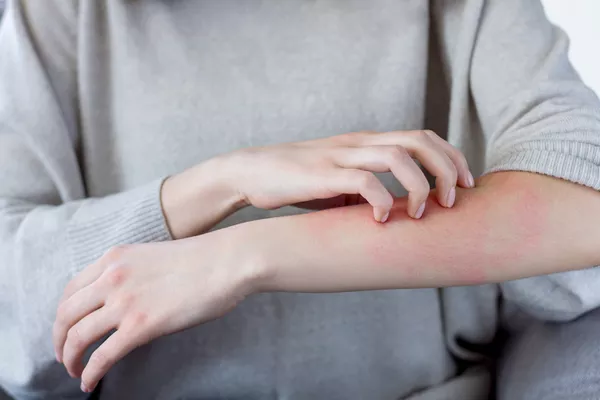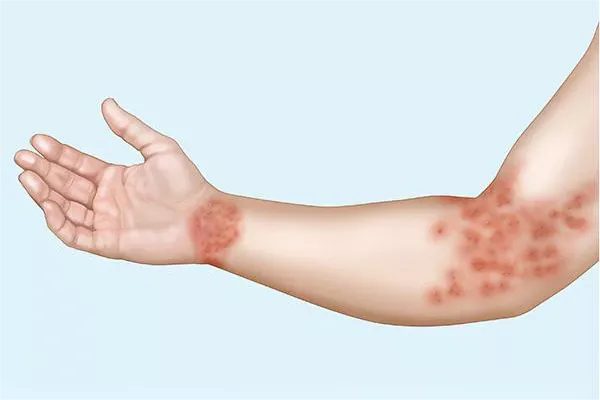Hives, or urticaria, are itchy, raised welts on the skin. They can be triggered by various factors, including allergens, stress, or certain medications. Understanding the strongest medications for hives can help manage symptoms effectively. In this article, we will explore the types of medications available, their effectiveness, and other treatment options.
Understanding Hives
What Are Hives?
Hives are red, itchy welts that can appear anywhere on the body. They occur when histamine and other chemicals are released into the bloodstream. This response often happens due to allergens, such as:
- Foods (nuts, shellfish)
- Insect stings
- Medications (antibiotics, nonsteroidal anti-inflammatory drugs)
- Environmental factors (pollen, pet dander)
Symptoms of Hives
Common symptoms include:
- Raised, itchy welts
- Swelling in some areas (angioedema)
- Flushing of the skin
Symptoms can vary in duration and severity. Some people experience hives for a few hours, while others may have them for days or weeks.
Types of Medications for Hives
1. Antihistamines
Antihistamines are the first-line treatment for hives. They work by blocking histamine, the chemical responsible for allergic reactions. There are two main types:
a. First-Generation Antihistamines
These include diphenhydramine (Benadryl) and chlorpheniramine. They are effective but often cause drowsiness.
Effectiveness: Good for immediate relief of itching and hives.
Side Effects: Drowsiness, dry mouth, dizziness.
b. Second-Generation Antihistamines
These include cetirizine (Zyrtec), loratadine (Claritin), and fexofenadine (Allegra). They are less sedating and can be taken daily.
Effectiveness: Effective for chronic hives.
Side Effects: Less drowsiness compared to first-generation.
SEE ALSO: Why Do Hives Show Up in Different Places?
2. Corticosteroids
Corticosteroids, like prednisone, can reduce inflammation and are effective for severe cases of hives.
Effectiveness: Quick relief for severe symptoms.
Side Effects: Weight gain, mood swings, increased blood sugar levels with long-term use.
Corticosteroids are typically prescribed for a short duration to avoid side effects.
3. Leukotriene Receptor Antagonists
Montelukast (Singulair) is a leukotriene receptor antagonist that can help manage hives by reducing inflammation.
Effectiveness: Useful in some chronic cases.
Side Effects: Headache, stomach upset, mood changes.
4. Immunomodulators
In severe cases, doctors may prescribe immunomodulators like cyclosporine or omalizumab (Xolair).
Effectiveness: Help reduce the severity and frequency of hives.
Side Effects: Increased risk of infections, kidney issues.
5. Epinephrine
For acute allergic reactions, epinephrine (adrenaline) is crucial. It’s administered via an auto-injector (EpiPen).
Effectiveness: Rapid response to severe allergic reactions.
Side Effects: Increased heart rate, anxiety, and dizziness.
Choosing the Right Medication
Mild Hives
For mild cases, over-the-counter antihistamines are usually sufficient. Second-generation antihistamines are often preferred due to their minimal side effects.
Moderate to Severe Hives
For more severe or persistent hives, a doctor may recommend:
- Prescription-strength antihistamines
- Short-term corticosteroids
- Immunomodulators
Chronic Hives
In cases of chronic hives lasting six weeks or more, treatment may involve:
- Long-term use of antihistamines
- Regular monitoring by a healthcare professional
Combination Therapies
Sometimes, doctors may prescribe a combination of medications to provide better relief. This may include:
- A higher dose of antihistamines
- Corticosteroids for short periods
- Omalizumab for long-term management
Non-Medication Treatments
Lifestyle Changes
Along with medication, lifestyle changes can help manage hives:
Identify Triggers: Keep a diary of food, activities, and environments to pinpoint triggers.
Stress Management: Techniques like yoga, meditation, and deep breathing can help reduce stress-induced hives.
Cold Compresses: Applying a cold compress to the affected area can relieve itching and swelling.
Dietary Adjustments
Some people find that certain foods exacerbate hives. Common culprits include:
- Alcohol
- Spicy foods
- Processed foods
Eliminating these from your diet may help.
Skincare
Using gentle, fragrance-free soaps and moisturizers can prevent skin irritation. Avoid hot showers, which can worsen itching.
When to See a Doctor
If you experience any of the following, consult a healthcare professional:
- Hives lasting more than six weeks
- Severe swelling or difficulty breathing
- Frequent episodes of hives
Conclusion
Managing hives effectively often requires a combination of medications and lifestyle changes. Antihistamines are the first line of defense, while corticosteroids and immunomodulators may be needed for more severe cases. Always consult a healthcare provider for personalized treatment options, especially for chronic or severe hives.
By understanding the medications available and the triggers for hives, you can take proactive steps to manage this condition effectively.
Related topics:


























